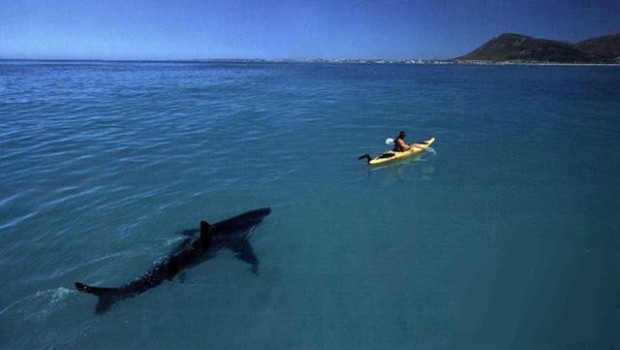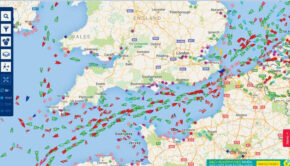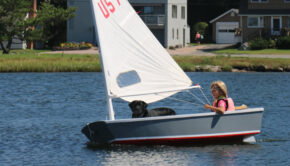Situational Awareness: A sailing lesson in life
Published on February 20th, 2015
by Matthew Reid
I have had some time recently to muse upon all the lessons sailing has given to me and am constantly amazed at the length and breadth of the spectrum of overall knowledge learned, as well as the countless ‘pearls of wisdom’ imparted.
Sailing as a sport and recreation has lessons at all levels of skill. In the beginning, you learn basic knowledge of wind, waves, lift, etc., just as part and parcel of learning the physical mechanics of sailing. A by-product, if you will. You also learn to put things together and take them apart. However, I am going to skip ahead to some of the lessons I have garnered in the last few years.
In this essay, I am going to focus upon Situational Awareness–something that many of us fail to use in our everyday lives, on an ever-increasing basis. In fact, it looks like from the first generation of smart phone users and on, people are going through the motions of life with almost zero awareness of their immediate situation and are looking down, fixated on the screens of their phones.
As any experienced sailor knows, whether on the racecourse, open ocean, or just coastal cruising, you need to stay aware and alert for a multitude of reasons. You need to be watching the wind and constantly monitor its strength, direction and tendency. You need to be adjusting the sails as well, a roving eye taking in the detail of the shape. You need to be very aware of the boats around you, if on the course, or in general while out for a cruise. You need to be aware of where everyone is on the boat, as to make sure all are accounted for. You need to be aware of feedback from your instruments, to better your performance. And more, much more if you think about it.
The better the team, the more obvious it is that all members of the team possess a very high level of focus and situational awareness. Distractions are minimized and the common energy helps the team in communication and overall performance.
The thought occurred to me that sailors, especially offshore sailors, use all the five senses (and sometimes a sixth sense) on an on-going basis. Sight, touch (feel), and hearing are fairly obvious. However, taste and smell are prevalent as well. Offshore, you must constantly be smelling the engine room, bilges, tanks, etc. leaks of one sort or another are often detected by smell. Taste is common as well. We all taste the bilge water to see if it is fresh or salty, has diesel in it, etc. Nasty, but it has to be done.
Those who have spent countless nights offshore also know that if you wake up to ‘something’, then the odds are it is SOMETHING. A nagging noise, barely perceptible, an unknown odor or odd feel to the motion of the yacht. The lesson learned hear is: If it wakes you up or disturbs you, deal with it immediately. Find out what it is, make your analysis, and execute the cure.
It is much easier to drag your tired bones out of the bunk and do the job immediately, than it is to wait. For the second lesson learned is small mistakes or problems lead to big mistakes and problems and disaster may not be far behind.
As a Captain, I spend hours looking at the yacht, knowing each screw and connection, cognicent of the places where issues have been known to occur and checking them regularly. It is amazing to me how you can look at something, literally stare at it, and not see a flaw or problem. Then suddenly, a quick glance somehow brings it to your awareness and you take care of the issue.
This all leads me back to the idea of basic situational awareness. As sailors, it is something that we learned on the water, perhaps not even thinking about it consciously. It is part of the learning curve of the overall skill set sailing requires.
The cool thing is, it can be practiced constantly, wherever you are. You take in your surroundings, make mental notes of things in general and then watch for changes. Just practicing being of aware of your environment and the activities going on in it can help your ability to focus and process information while on the water.
I like to remember to practice it whenever I am in any social situation. For instance, at the yacht club, a restaurant, walking on the street or hanging out with the family at home. When you are situationally aware, you begin to notice who is not paying attention and who is, if anyone.









 We’ll keep your information safe.
We’ll keep your information safe.